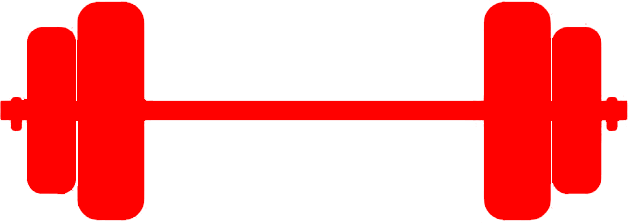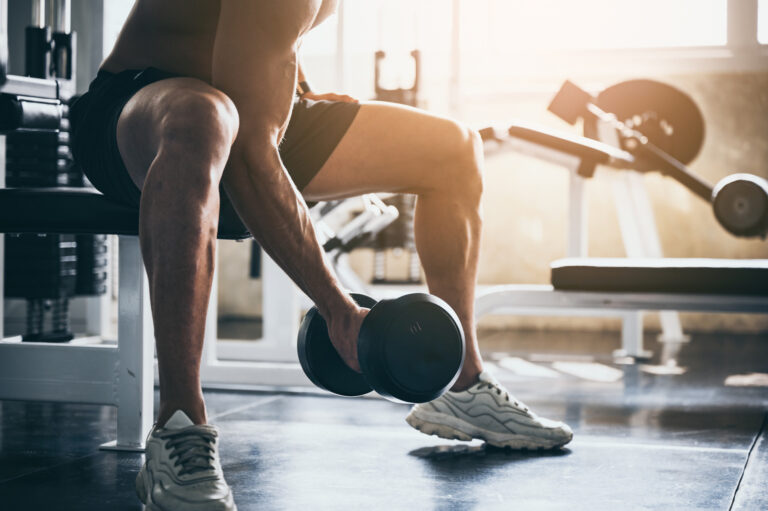7 Tips to Speed Up Muscle Recovery After a Workout

Muscle recovery is an essential part of any fitness journey. Not only does it enhance performance, but also reduces your risk of injury. Although recovery isn’t a one-size-fits-all approach, there are some key strategies you can implement to speed up the process for optimal results.
By incorporating these tips into your routine, you can improve your muscle recovery after workout, reduce soreness, prevent injuries, and achieve your fitness goals faster.
Why Is Muscle Recovery Important After Your Workout?
When you exercise, especially during intense workouts, you create small tears in your muscle fibers. And if you’re looking to add muscle, that’s a good thing, because this how your muscles get bigger.
But, you also need to allow your muscles to recover from these small tears. That’s where muscle recovery comes in. Recovery is the phase where these fibers muscle repair and grow stronger.
Without proper recovery, you risk overtraining, which can lead to fatigue, decreased performance, and potential injuries.
7 Tips for Muscle Recovery After a Hard Workout
1. Fuel Your Body with the Right Nutrition
Nutrition plays a significant role in post-workout recovery. You need to refuel your muscles with the nutrients they need to repair and grow. These include amino acids from protein and glycogen from carbohydrates. Here are some of the good foods for muscle recovery:
- Protein: Chicken, fish, or eggs, or plant-based options like lentils and tofu.
- Carbohydrates: Whole grains, fruits, and vegetables.
- Healthy Fats: Plant-based options are rich in heart-healthy nutrients. Some great options include avocados, nuts, and seeds.
2. Stay Hydrated
Hydration is also fundamental for muscle recovery, as it helps transport those nutrients to your muscles.
Aim to drink water consistently throughout the day, especially before, during, and after your workouts. The amount of water you need varies depending on your activity level, how intense your workout is, and the climate you live in, but a good rule of thumb is to drink at least half your body weight in ounces each day.
3. Prioritize Sleep
Sleep might not be the first thing you think about when getting results from your workout routine, but it’s a very important part of the process. Your body does most of its repair work while you sleep, so you need to give your muscles the time they need to recover and grow. Aim for 7-9 hours of quality sleep per night to maximize recovery.
4. Incorporate Stretching and Mobility Work
Dynamic stretching before a workout and static stretching afterward can improve flexibility, enhance blood flow, and reduce muscle stiffness. Tools like foam rollers or massage can also help to alleviate soreness and release tension.
5. Use Low-Intensity Exercise For Active Recovery
Active recovery can increase blood flow without putting additional strain on your muscles. Consider activities like walking, yoga, or light cycling to help speed up your recovery and reduce soreness.
6. Consider Supplements for Recovery
While a balanced diet should be your primary source of nutrients, supplements can help fill gaps. Common options include:
- Protein powders to meet daily protein requirements.
- Branched-Chain Amino Acids (BCAAs) to reduce muscle soreness. Hollywood Supps carries one of the best on the market. You can get it here.
- Omega-3 fatty acids to fight inflammation.
- Magnesium to relax muscles and improve sleep quality.
7. Listen to Your Body
Pay attention to how your body feels after exercise. If you’re overly sore or fatigued, it might be a sign to take an additional rest day, add more active recovery into your routine, or modify your nutrition plan.
How to Speed Up Muscle Recovery
To accelerate your recovery process, combine the tips above with these additional strategies:
- Stay consistent with your recovery routine. Making recovery a priority ensures long-term progress.
- Avoid overtraining. Balance intense workouts with adequate rest and recovery days.
- Invest in recovery tools. Products like foam rollers, massage guns, and compression sleeves can enhance your recovery process.
- Seek professional guidance. Regular visits to a physical therapist, chiropractor, or massage therapist can keep your muscles healthy and functional.






